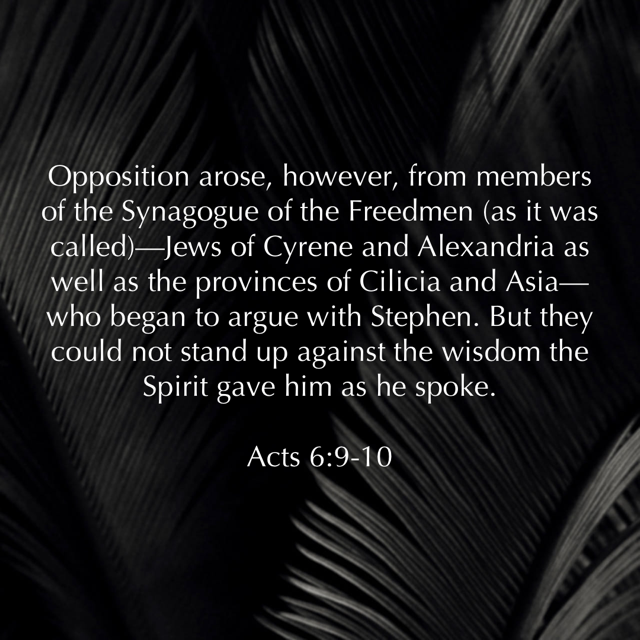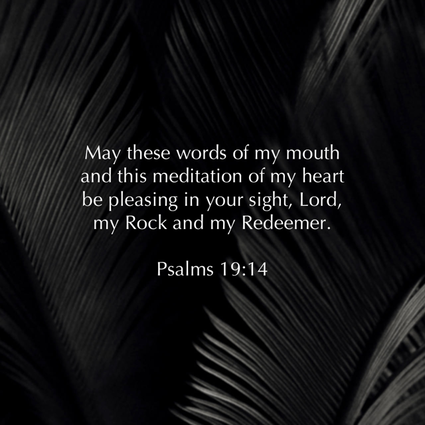|
Good morning!
We're so glad you decided to join us today!
When we meet in person, we take time to share how our weeks have been, and any prayer requests we might have. Consider your past week, and any joys or concerns you might have. If you feel comfortable, you can share them as a comment on this post. When you are ready, use the prayer below (source) to get started.
Almighty Lord God, give us true faith, and make that faith grow in us day by day. Also give us hope and love, so that we may serve our neighbors according to your will; through your Son, Jesus Christ our Lord, who lives and reigns with you and the Holy Spirit, one God, now and forever. Amen.
This week's lesson is on Isaiah 49:18-23.
The first readers of the prophecy in today’s text understood it as concerning a return from Babylon, for Isaiah had earlier given the dire prophecy about being taken into exile there. (Isaiah 39:6-7) When Babylon fell, the Jews would return to Judah and Jerusalem. At that time Jerusalem would be rebuilt, and the foundation of the temple laid.
Jerusalem lost its inhabitants when Babylonians destroyed the city in 586 BC. Jeremiah wrote that there were only 832 who were taken from the city at that time compared with 10,000 who had been taken earlier. Those who remained had endured the deprivations and starvation that occurred during the siege. This small remnant was taken away to join others already in Babylon. The city was a desolate ruin for almost 50 years. On the night in 539 BC that soldiers of Darius the Mede captured Babylon, King Belshazzar was having a gigantic banquet that featured the vessels from the temple in Jerusalem. They were startled when fingers appeared and begun to write on the wall. Daniel was finally called to interpret the message. The last part of the message was that the kingdom was given over to the Medes and Persians that night. The Babylonian empire came to an end following its capture by the Persians and Medes under Cyrus. There was a decree that all the captive peoples could return to their homelands and that they were to take their gods with them. The Jews were allowed to take the items from their temple. The first wave of exiles returned in 538 BC. It is assumed that the 50,000 people who returned first went to Jerusalem and then they scattered to find their ancestral homes throughout Judah. The previous lesson ended with Isaiah 49:13 and great Joy was predicted to be expressed. Gentiles in all directions would rejoice as the Lord comforted his people. Isaiah prophesied that a virgin would conceive and bear a son. That passage is cited in Matthew as fulfilled in the birth of Jesus. The fulfillment was 700 years away. That same child would grow up to fulfill many other prophecies of Isaiah, not least the prophetic expectations linked to a person referred to as the suffering servant. The servant is understood to be the Son of God. The mood changed from exuberance to a lamentation that the Lord has forgotten his people and Jerusalem. The Lord asked rhetorically whether a woman can forget the child she gave birth to and nursed. The Lord could not forget the people of Zion. God had promised a return, and he also said that Jerusalem and the cities of Judah would be rebuilt. The call to lift up your eyes is a call to a new posture, one of hope rather than desperation. Upon obeying the command, Lady Zion would look around and see her children. In contrast to the mourning clothing Zion had been wearing, the Lord promised that she would have reason to dress like bride, turning towards joy instead of sorrow. The appropriate attire for a bridal city is a thriving human population. Those who returned would be Zion’s ornamentation, the source and sign of her newfound joy. The growth in the Jewish population during the captivity was significant. It is reminiscent of the growth that the Hebrews experience when they were in bondage in Egypt for 430 years. They went into Egypt as 70 people as the family of Jacob and left as a nation of two million people. Many of the exiles returning from exile had never seen Jerusalem with the temple standing. Although the temple would be rebuilt in Jerusalem the exiles in Babylon were dedicated to maintaining their faith while far from the center of worship. And some exiles stayed in Babylon, even when the way was opened to return to Judah. This paved the way for the rise of synagogues and religious leaders called rabbis. Jews scattered throughout the Mediterranean region during the second temple period taking their faith with them. This became highly important in the long term, when Gentiles would be welcomed into God’s family regardless of religious or ethnic background or geographical relationship to Jerusalem. The place where Zion’s children could live would turn out to be throughout the world, to its most remote locations. Zion is once again called to see. God’s beckoning to the nations and lifting up his banner to the peoples reveals that God will use foreign nations to accomplish his will for Zion. Language like lifting God’s hand and setting up his standard is used throughout Isaiah to emphasize how the Lord chose to communicate with foreigners to draw them to him and his will. We might think of the Magi reading the sky to learn of Jesus birth and where to go to praise him as an example of this. Then know that I am the Lord; those who hope in me will not be disappointed We need to obey him first by rejecting all others claim the same status. Following closely after this is living in accordance with God’s revealed laws, not choosing for ourselves what seems good or simply justification. And although knowing the Lord requires faith, he also supplies plenty of evidence to give us confidence in who he is.
Conclusion
Jesus’ coming results in a change of fortune; though we were condemned, we are now promised eternal life when we choose to follow him as our Lord and Savior. (Romans 8:1-2). And this change of fortune results in a change of identity; we who were once far away are now part of God’s family. Essentially our address has changed from being in this world to residing in the kingdom of heaven. This Servant Song is one of great hope for Israel and all others. Though Isaiah’s audience couldn’t know, the redemption promised here goes well beyond an end to exile in Babylon. It encompasses an end to exile in sin. Though Jesus we have abundant life; he can be trusted with all our needs. Prayer Almighty God, we are thankful for the promises that you made to your people. In Jesus’ name we pray. Amen Questions
Benediction
This week's benediction is from the King James Version.
Next week's lesson will be on Isaiah 51:1-8.
0 Comments
Leave a Reply. |
AuthorWe are a small, rural Presbyterian church in southwestern Pennsylvania. Archives
July 2024
Categories
All
|



 RSS Feed
RSS Feed